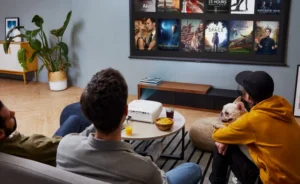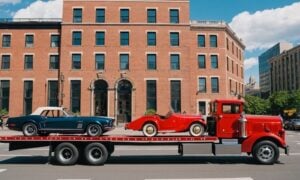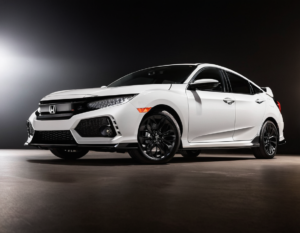Creating the “Disruptive” Battlefield 2042 Soundtrack

The Battlefield series is known for its incredible battles and thrilling gunfights. However, it has also earned a reputation for providing a high-quality audio experience. From the accurate reproduction of weapon fire to the crunch of gravel under your boots, it’s one of those most intensely auditory gaming experiences you can play today – I recommend you get yourself a good set of headphones when you play if you haven’t already done so.
Its soundtrack has also come to be familiar to players, and its “Battlefield theme” always seems to find a way to live rent-free in my mind with each new iteration. Battlefield 2042’s soundtrack, however, feels like a production on a level that we’ve never heard before – and frankly, I think it’s amazing. There’s this physical, harsh texture running through each track that complements the on-screen chaos of battle like never before.
To learn more about its composition and its unique arrangements, we spoke with Hildur Guðnadóttir and Sam Slater, the composers of the Battlefield 2042 soundtrack, to learn more about the work that went into one of the year’s best video game scores.
A thing I love about the Battlefield 2042 soundtrack is that you can practically feel the music: it’s very metallic, organic, and even harsh – my mind conjures images of rusted metal drums, coarse sand, and the texture of a bass guitar string on several tracks. How did you arrive at this “texture” when sitting down to start composing the game’s soundtrack?
The sound palette for discussing Battlefield 2042 we asked ourselves “What kind of world is being built?” The world of the game is futuristic, but that future is close enough to our current world that the sound must feel rooted in our current reality. No shiny synths and laser guns, no nostalgia orchestras that romanticize or distance players from this brutal world.
Hildur and me wanted the music to be fully rooted in the environment. We quickly came up with the idea of bringing the environment to life.
Is it more fun to compose a score for a game than to work on a film soundtrack? Did you find any parts more difficult than expected or easier?
The experience of working on a game was very enjoyable. The visuals in a movie are often locked and music added at the end. This leaves little room for intertwining visual and auditory worlds. They can be symbiotic, as we hope our recent project “Chernobyl” was, but often our eyes and ears exist in parallel. With a game, we don’t see the final graphics until its finished, and therefore we are constantly working with ideas, concepts, and impressions of the worlds that are being created. This allows audio and graphics to interact and collaborate in a way that really lets one explore the possibilities for music, sound effects, and the visual world to become one living entity. However, it is difficult to achieve this cohesion. We took 18 months to achieve this result.
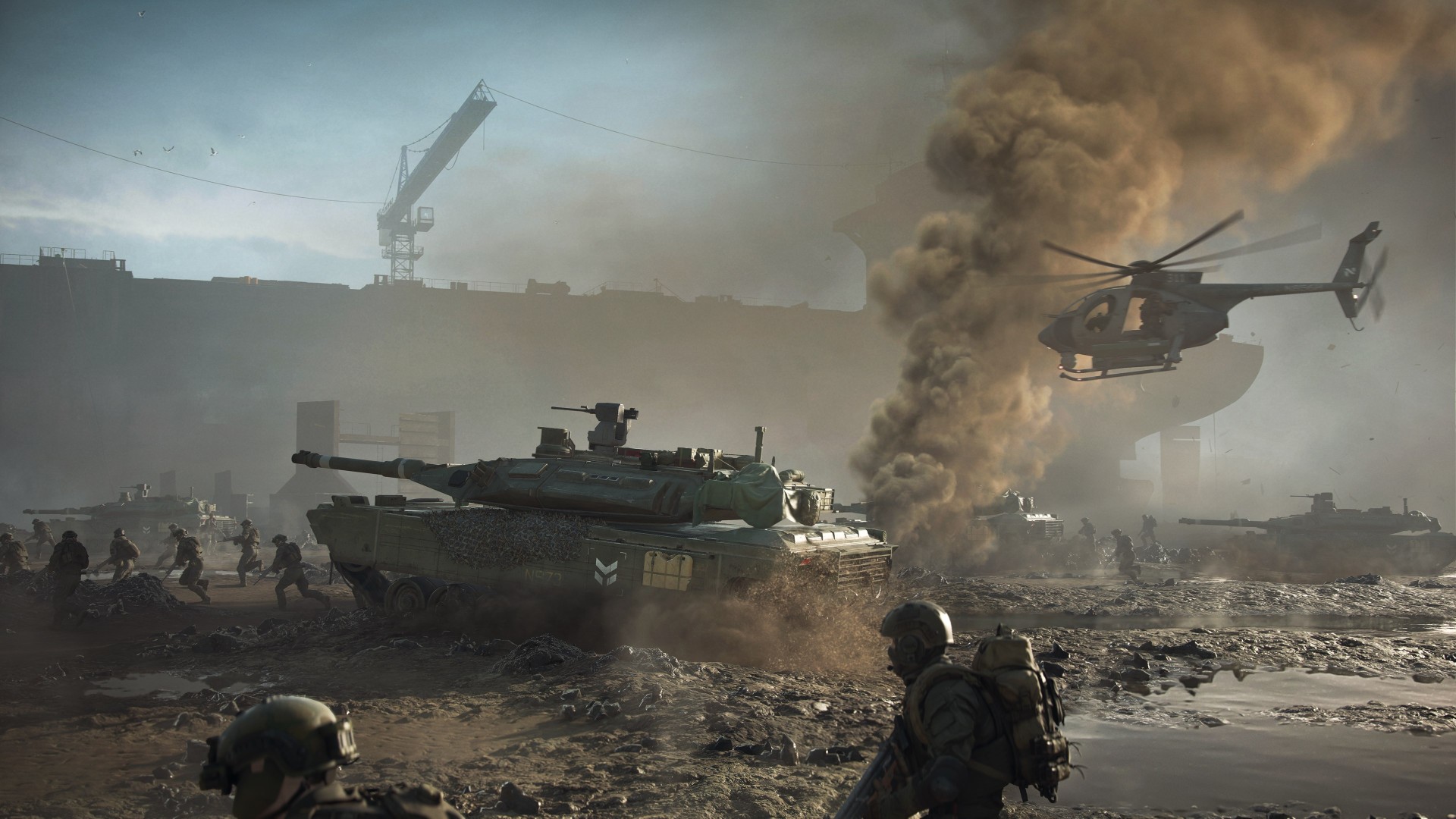
Your work on the “Chernobyl” soundtrack is fascinating, in that you created sounds from a real nuclear power plant in the composition. It is amazing to be that. Battlefield 2042 doesn’t have a “physical” space in that sense, could you share how you went about discovering the soundscape for the game? Was that a creative process?
The materials on the maps were used to guide the sounds that we created. The environment could be dominated by glass and sand, so we created instruments or processes that used these materials. This could have meant a cone-shaped feedbacking speaker covered with sand or shattered glasses being used for rhythmic sound.
One of my favorite examples of this is the sound at the beginning of “Wet Bulb,” a track based on the music for a map called Renewal. This map features a interesting dialog between very lush green areas and extremely dry areas that have a molten sodium power generator. We wondered how we could sonically dry sounds out and so we played recordings of sand moving, through a plate reverb to create “wet sand” and then used algorithmic reverb removal to remove the reverb from the sound. This strange sound is not like the original but it creates an interesting sonic foundation for such a dry and dry map.
Was it a collaborative effort with EA’s development team and DICE? They had an idea of how the game should sound. Or did they give you complete creative freedom and let you return to them with your thoughts?
DICE, EA and other collaborators were extremely supportive. Our 18-month collaboration was highly exploratory. When we all originally discussed doing the score together, the word that featured heavily was “disruptive.” Steve Schnur, the Head of Music at EA, said he wanted a score like no other and this was echoed by the team at DICE. The team at DICE encouraged us to explore the possibilities and felt that it would be an incredibly missed chance considering the strength of the game.
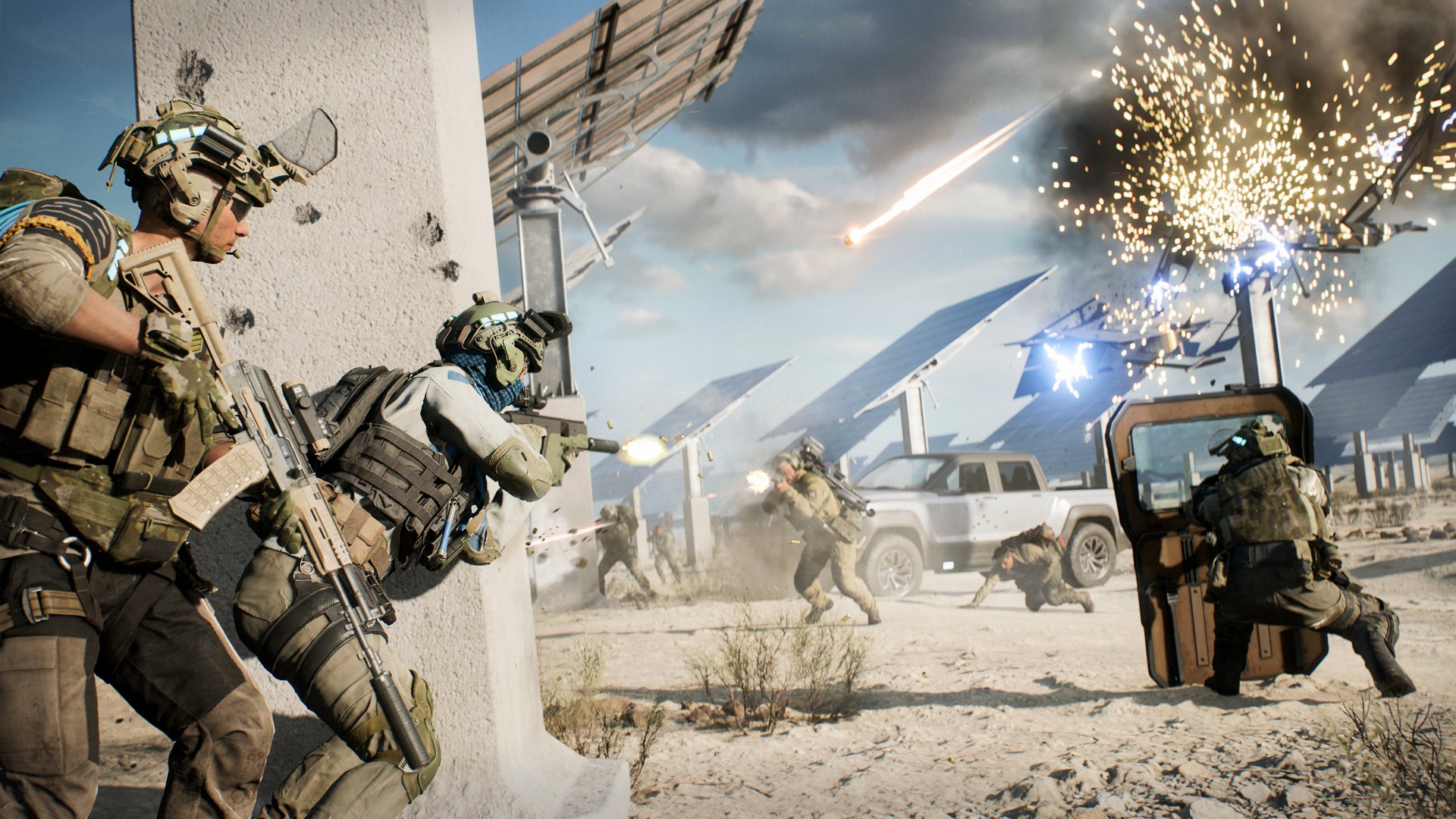
Hildur and myself have great respect for Battlefield’s previous scores and we entered the project expecting players to perform to that standard, while also trying to push the sound world to a new direction. Over weeks of conceptual discussions about what we could do to bring the environments to life, with EA and DICE in every meeting, the phrase “we can’t do that” was not uttered once! With an incredible amount of knowledge and support from all involved, we began to gather sounds. The result is both exciting and satisfying for Battlefield enthusiasts.
Battlefield is the iconic theme. Battlefield 2042 feels like it was pulled apart and reassembled with the world’s harshest set of tools — I think the result is fantastic, and each time I hear it I catch myself listening for a few of those specific musical cues that I’ve come to know and love. That theme was composed by me. Battlefield 2042How did you find the perfect balance between the sounds you wanted and the musical legacy you left behind?
It was a difficult task to score the music, since the original song is something millions know and love. It was important that we kept the theme in mind, but not make it stand out from our world. It took us a lot of experimentation and playing to get that right balance. Our theme rests on the thunderous bass of a DIY instrument proudly named the “power plank,” and the saturated echoes of the Battlefield 2042Sound world rising up to form the main melodic motif. This theme had to be as unapologetic as the game’s world, so we worked hard.
Listening to the music can help you relax. Battlefield 2042, what is it you’re hoping for them to take away from the experience? How do you wish them to feel?
The world is for us. Battlefield 2042The strange mixture of chaos and hope is what makes the map. There is always an equal amount of chaos, man-made structures breaking down and weather systems that are chaotic. In the middle there are human beings who take responsibility for their surroundings. The goal is for the player to feel empowered, excited and aware that their worlds are out of control.
Thank you Hildur Guðnadóttir and Sam Slater for taking the time to share with us your creative process behind one of our favorite video game scores of the year. Battlefield 2042 S.|S. Keep checking Xbox Wire to get the most recent news and features on your favourite Xbox games.
Photographs by Camille Blake
#Creating #Disruptive #Battlefield #Soundtrack

